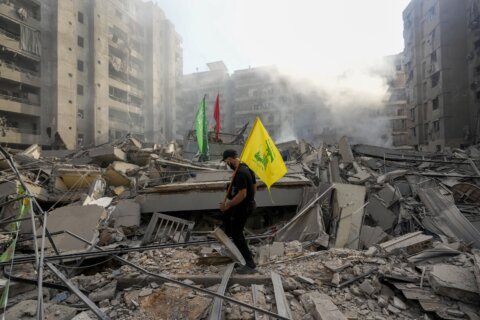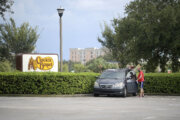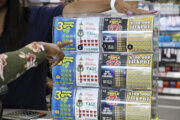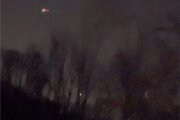CARACAS, Venezuela (AP) — It doesn’t feel like Christmas in Venezuela. At least not yet. Even if the president wants it to be.
Residents of Caracas, the capital, woke up Tuesday to a towering Christmas tree standing in a popular public square, weeks after President Nicolás Maduro declared the jolly season would start earlier this year in the South American country.
Workers rushed to set up decorations in various neighborhoods, but the mood was far from festive.
“I think it’s terrible because it’s October,” said Desiré Aguiar, 32, before setting up her jewelry and accessories booth in a local market. “Halloween hasn’t even passed, and it’s already Christmas? Are we celebrating them together?”
Venezuelans, particularly those who remember life at the turn of the century, have long associated Christmas with careless shopping and bulging wallets thanks to profit-sharing and holiday bonuses employers paid at the end of the year. Employees often received three times their monthly salary all at once. The smell of fresh paint even signaled the arrival of Christmas because so many put a new coat on their walls.
These days, however, meager wages and bonuses resulting from the country’s economic collapse have turned the season into a time of have and have-nots. And this year, the season arrived amid a collective pessimism that followed the July 28 election.
“If they start paying… the Christmas bonus in advance, we won’t have anything left in December,” Aguiar lamented. “I think it’s a really bad idea.”
It remains unclear whether public and private employers will make changes to bonus payments this year. Maduro, whom electoral authorities handed a third six-year term, surprised the country on Sept. 2 when he declared on state television that the Christmas season would start earlier than ever.
Mockery followed Maduro’s decree across social media, but on the streets, few dared to say anything about the decision — another sign of the chilling effect resulting from the repression campaign unleashed by the government after the highly anticipated election.
Thousands of people, including minors, took to the streets across Venezuela hours after ruling party-loyal electoral authorities declared Maduro the winner without showing any vote tallies. The protests were largely peaceful, but demonstrators also toppled statues of Maduro’s predecessor, the late leader Hugo Chávez, threw rocks at law enforcement officers and buildings, and burned police motorcycles and government propaganda.
Maduro and his ruling party allies, who control all aspects of government, responded to the demonstrations with full force. Security forces detained more than 2,000 people, including minors, and more than 20 protesters were killed.
Maduro also called on Venezuelans to denounce election doubters via a government-run app originally created to report power outages and complaints about state-provided services. This prompted people to delete photos, videos, memes, messages and apps from their phones to avoid prosecution.
On Tuesday, while some rejected Maduro’s decree for economic or political reasons, others rejected it for puritanical reasons.
“Christmas is in December. We must be clear about that, we celebrate the birth of our Lord Jesus Christ,” Wilfredo Gutiérrez, 61, said while observing a group of workers setting up decorative lights along a main avenue in Caracas.
“The one good thing is that they picked up the trash. Normally, this place is dirty.”
___
Garcia Cano reported from Mexico City.
Copyright © 2024 The Associated Press. All rights reserved. This material may not be published, broadcast, written or redistributed.






